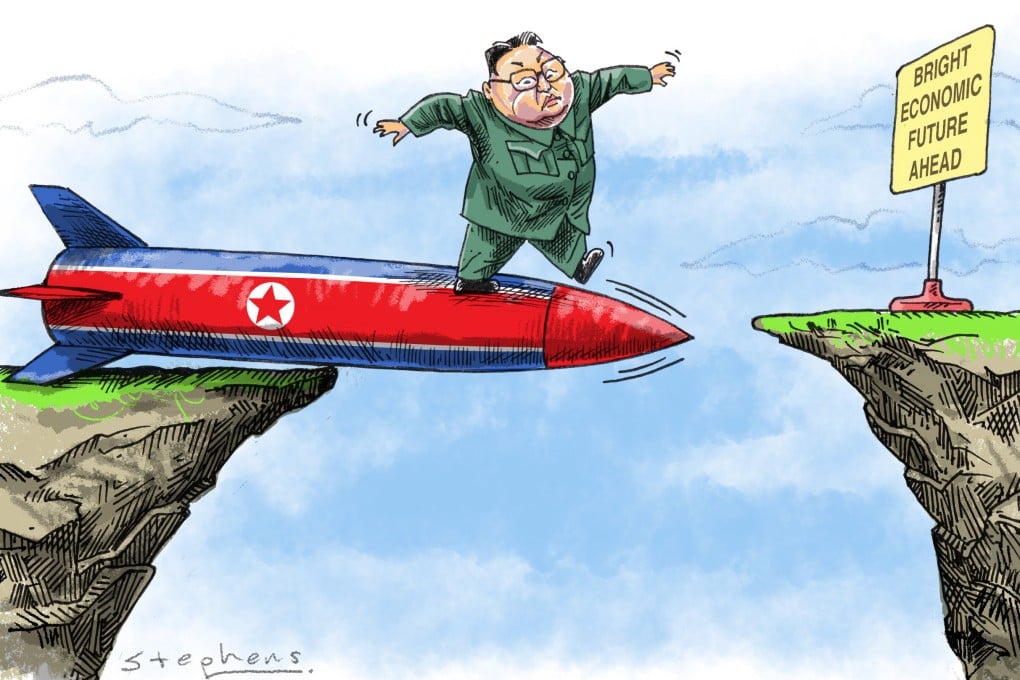Opinion | With North Korea on the edge, Kim Jong-un has three options – but only one will ensure regime survival
- Kim could seek to maintain the status quo, or trade nuclear arms for the lifting of sanctions and security guarantees while maintaining totalitarian rule
- Yet, his only realistic option is to deliver a bright future by agreeing to open up the country with financing tied to economic reform and disarmament

North Korea and its leader, Kim Jong-un, are living on borrowed time. This brutal truth is evident given the nation’s dire state of affairs.
So, here are three options as North Korea struggles for survival.
The first is to maintain the status quo and seek survival as a nuclear weapon state, but this is untenable. Nuclear weapons fulfil four essential functions in sustaining North Korea and Kim’s rule. First, the nuclear armaments deter all real and imagined US military threats while cost-effectively providing military superiority over South Korea.
Moreover, the development of a nuclear weapons programme symbolises a monumental achievement, from which Kim draws his legitimacy as supreme leader. Internally, nuclear weapons provide the basis for public solidarity through waging a belligerent foreign policy.

